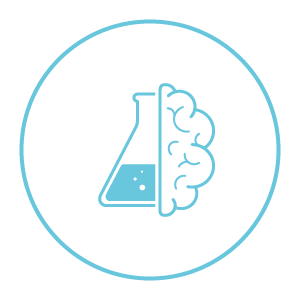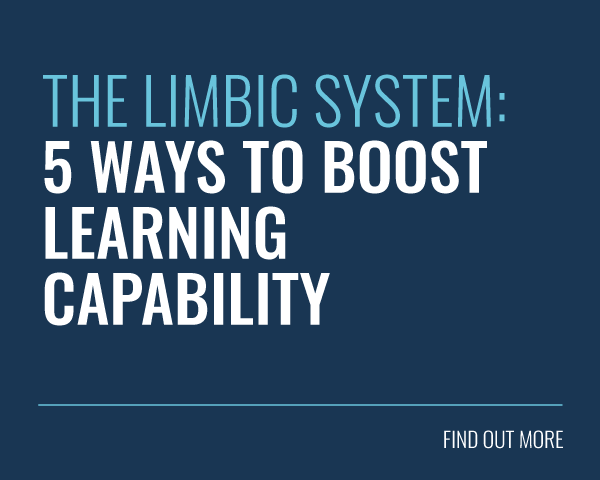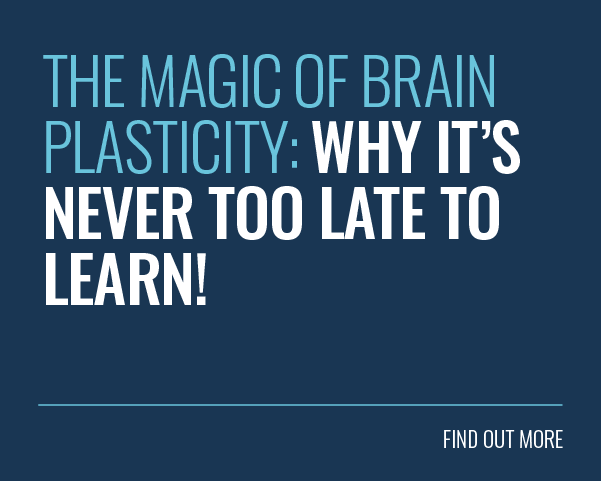
Curiosity in learning is essential. In fact, if you’re not curious about a subject, you may as well not learn it at all. It’s the curiosity that inspires us to reach amazing feats. Take Britain’s most avid reader, for instance, who has reportedly borrowed over 25,000 books from her many library visits!
Just imagine how much she has learnt over the years!
This is what curiosity does; it pushes us to learn more and more. It’s also essential for businesses as a whole. It helps with rational thinking, brainstorming, constructing new concepts and adapting to changes in your industry.
Francesca Gino, a writer for the Harvard Business Review, surveyed more than 3,000 employees across a variety of industries regarding curiosity. A whopping 92% of the participants viewed curiosity as a stimulant for job satisfaction, motivation, innovation and high performance.
In order to know why curiosity is essential for learners, we need to know the cogs and gears of its inner workings…
The Inner-Workings of Curiosity

Without curiosity, life would become a bit stale. Curiosity breathes new life into your employees. It encourages change and may even draw out skills your team didn’t know they had! How do we get to this change? By self-determination:
Self-Determination
If you could buy curiosity off the shelf, then self-determination would be listed as the main ingredient. Without that inner-motivation, we wouldn’t be curious about anything, and the cat would have all nine of its lives. You might wonder ‘what would happen if I were sucked into a black hole?’. But that would be that. You’d never have the drive to open an encyclopedia or tweet Neil Degrasse Tyson for the answer.
What is Self-Determination Theory?
The Self-Determination Theory (SDT) is a study conducted by the admired psychologists Richard Ryan and Edward Deci. So esteemed in-fact, that it’s been cited over 37,000 times!
Ryan and Deci wanted to discover the key elements needed for intrinsic motivation. Intrinsic motivation is when a person doesn’t require external factors like money to be driven. They are propelled by an inner-desire.
So what were their findings? Ryan and Deci found that we all need three components in order to possess self-determination.
In no particular order, these are:
1. Autonomy

Autonomy is a human need. Let’s face it, we all have a psychological desire to fly from the nest and make it on our own. Boiled down, autonomy is about having the ability to make decisions based on your own values and interests.
It’s owning your triumphs as well as your mistakes. Autonomy gives us a sense of self-reliance and self-worth that’s essential for a happy and stable personal life, as well as work life.
2. Competence
Competence is not just about knowing your stuff, but knowing that you know your stuff. It’s a certain swagger that says: trust me, I know what I’m doing! From managerial soft skills to product knowledge to negotiation skills; it all relates to workplace competence. To be self-determined to learn, you need to have a certain amount of capability, which will soon blossom into expertise as your determination to learn goes from strength to strength.
3. Relatedness
Relatedness is the desire to connect with people. For self-determination to work, we must feel that our opinions count and we must feel valued as team members. The more relatedness and connection we feel, the more confidence we have. The more confidence we feel, the more self-determined we’re able to become!
Curiosity in Learning
Here are four ways in which you can use learning tech to inspire curiosity in the workplace:
1. Launch an Experts Area

Every department boasts individuals who seem to know that little bit more than their colleagues. Just like waves in the sea, this is a great source of untapped energy.
You can utilize this power to your own advantage by creating a virtual social club where employees can ask experts anything they want. From ‘Can somebody please help me with Excel?!’ to ‘Can anyone teach me Photoshop so I can edit a smile on my work photo?!’
2. Give the Gift of Autonomy
As you’ll already know, autonomy is a huge part of Self-Determination. Gift your learners the freedom to roam around your learning solution without restrictions and their curiosity will soon lead to them filling knowledge gap after knowledge gap.
In fact, New research into workplace culture by the University of Birmingham has found that employees who are given higher autonomy reported positive effects on their wellbeing and higher levels of job satisfaction.
This means that populating your LMS library with open-access content will help drive curiosity across your organisation. Learners will be free to explore topics that interest them, developing their knowledge in areas you never expected they would.
3. Encourage Social Learning via a News Feed

Increasingly, we’re finding that we learn most of what’s going on in the world through a news story or video on social media. Social media users seem to know more about politics, entertainment and business updates before news programmes on television do. We have started to adopt the same way of learning in L&D.
One of the beauties of social learning tech is that one learner sharing their passion for a topic can inspire a chain reaction of curiosity.
Growth Engineering Learning App and Growth Engineering LMS come with a news feed just like those on social media. Curious employees can cure their thirst for knowledge by simply logging in and viewing videos, podcasts, webinars, whitepapers, infographics and anything else on your social wall! Even better – they can inspire others with their own curiosity!
4. Reward Curiosity with Gamification

Curiosity won’t come naturally to all employees. This is where extrinsic motivation comes into play! Inspire a snooping nature by offering rewards for doing so. On Growth Engineering LMS learners can earn achievements for exploring the platform and completing content. It’s the perfect reward to incentivise learners to pry.
Final Word: Why is Curiosity Essential for Learners?
Curiosity is the lifeblood of all learning. It’s the driving force behind our motivation to learn. It’s the personal trainer in your brain that makes you Google everything you can about Roger Federer. It forces you to push the button you’ve been told not to push. It’s that new route home you try.
Curiosity fires the need for knowledge, giving the workplace subject experts! Want to find out more about the power of intellectual capital in the workplace? Download our whitepaper: Your Guide To Intellectual Capital in the Workplace.





